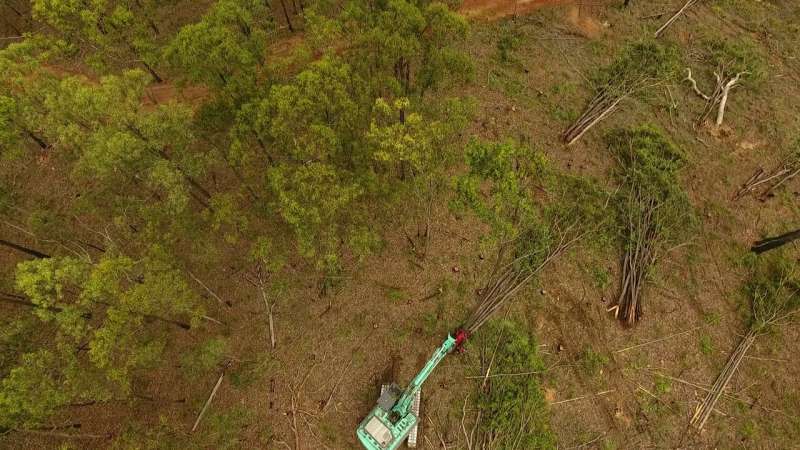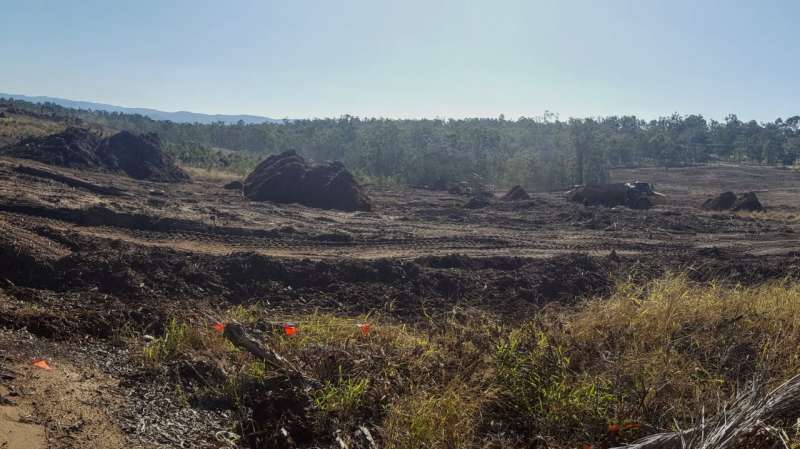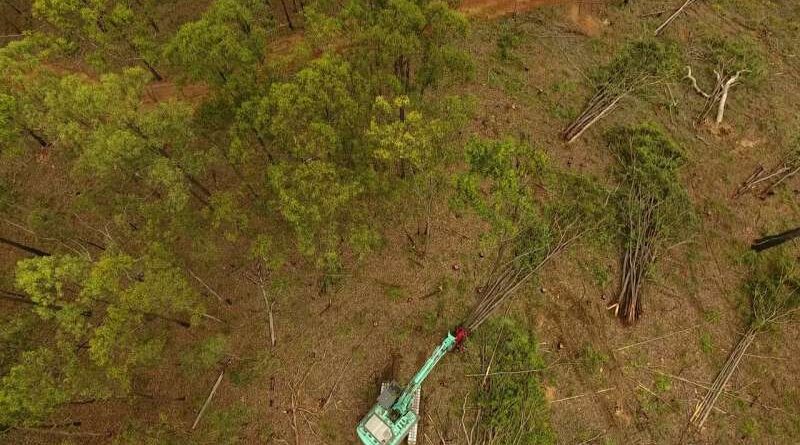Researchers say environmental laws are failing to reduce deforestation

Clearing trees for housing, Springfield, Queensland. Credit: Dr. Martin Taylor
Australia’s environmental laws are failing to stop high logging prices to make way for agriculture, development and mining, according to University of Queensland research.
Ph.D. candidate Hannah Thomas from UQ’s School of the Environment led a team that used satellite mapping and land clearing data to assess vegetation loss across northern Australia, including Queensland, the Northern Territory and Western Australia. Research published in Conservation Biology.
“We mapped out more than 20 acres and researched what national or state and local laws might apply,” Ms. Thomas said.
“Of the 1.5 million acres of land clearing we examined, 65% were potentially noncompliant with at least one rule.
“And only 19% of the corresponding approval has been reviewed and officially approved, and the rest has been canceled with some amendments.”
The researchers found that the clearing was considered inconsistent and a review under the Commonwealth Environment Protection and Biodiversity Conservation Act (EPBC) Act 1999 was probably required, but this did not happen.
Ms Thomas said the release, where the cleanup is allowed to continue without an assessment, was largely due to government regulations.

Rainbow bee eater, Wynnum, Queensland, 2021. Credit: Dr. Martin Taylor
“Queensland had the highest rates of deforestation with 75% of cases cleared for inspection under the state’s main vegetation management law,” Ms Thomas said.
“On the contrary, most of the cleaning in the Northern region was attempted, although the approval was almost the results.
“At that time, the development of the agricultural and mining sectors across northern Australia was driving the clearing, and was mainly linked to the development of pasture for beef cattle.”
Professor Martine Maron said reducing the cost of logging was particularly important given that Australia had agreed at the 2021 United Nations Climate Change Conference (COP26) to halt and reverse the loss of forests by 2030, and prevent the extinction of something.
“There is an urgent need to reduce the rates of land clearing in northern Australia if we are to meet our international commitments,” Professor Maron said.

Cleaning for urban development, Swanbank. Credit: Dr. Martin Taylor
“The effects are strong and serious, especially when combined with many smaller effects that our 20-hectare study did not capture.
“Australia must ensure existing laws are enforced, and support land managers to preserve and maintain forests and woodlands on their properties.”
Additional information:
Conservation Biology (2024). DOI: 10.1111/cobi.14354
Offered by the University of Queensland
Excerpt: Environmental laws failing to slow deforestation, researchers say (2024, August 20) Retrieved August 21, 2024 from https://phys.org/news/2024-08-environmental-laws- deforestation.html
This document is subject to copyright. Except for any legitimate activity for the purpose of private study or research, no part may be reproduced without written permission. Content is provided for informational purposes only.
#Researchers #environmental #laws #failing #reduce #deforestation
